‘If Tatar is your mother tongue, then the Motherland does not count on you?’
The State Council of Tatarstan stood up for the defence of the native language speaking out against renaming the subject and reducing the amount of study time

Legislative initiatives to change the language policy of Russia without discussion with the regions caused a strong reaction in the State Council of Tatarstan. At a session of parliament on 17 July, the deputies of the republic acted as a united front in defence of the native language, sharply condemning the decision of the Ministry of Education to change this concept to the vague term “language of the peoples of the Russian Federation” as well as to reduce the amount of teaching time. Parliamentarians declared the need to preserve the current standards and called the actions of federal bodies violations of the Constitution of the Russian Federation. Read more about it in the report of Realnoe Vremya.
“An incomprehensible trend is emerging”
On 17 July, the deputies at the session of the State Council of Tatarstan focused on the decree of the Ministry of Education on changes to the Federal State Educational Standard. From 1 September, the concept of “mother tongue” will be changed to “the language of the people of the Russian Federation,” and the hours of its study in year one at school will be reduced from two to one per week. The novelties are being introduced as part of the preparation of the draft principles of state language policy and the bill on the languages of the peoples of the Russian Federation, which should soon be submitted to the president of the Russian Federation.
“Languages are wealth! In multinational Russia, they must be preserved,” complained State Council deputy Kamil Nugayev at the session.
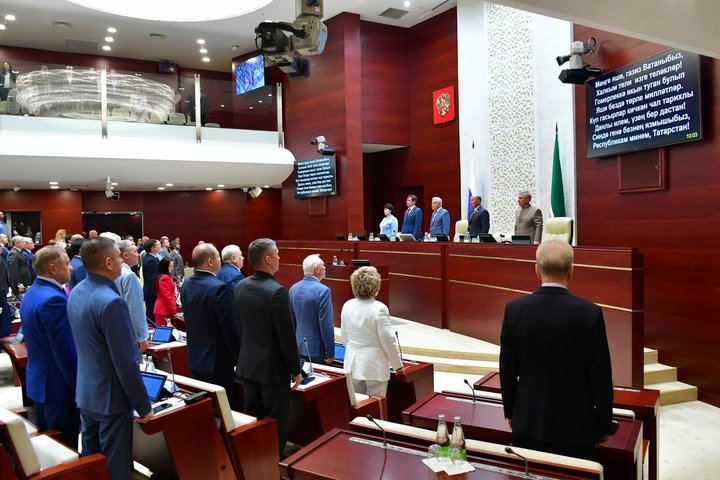
“An incomprehensible trend is emerging among some federal authorities. To adopt such fateful laws without discussing them with the regions. This is a very dangerous trend. The next step will be a law on native languages. On Tuesday, there will be a meeting at the Ministry of Education of Russia. Have you seen this law? I haven't,” said indignantly the deputy of the State Council of the Republic of Tatarstan, Chairman of the Union of Journalists of Tatarstan Ilshat Aminov.
“If we forbid people to consider the language of their people as their native language, we violate the Constitution”
The indignation of the deputies concerned all the proposed initiatives. For example, the head of the executive committee of the Council of the Assembly of the Peoples of Tatarstan Renat Valiullin believes that the exclusion of the concept of “mother tongue” violates the Constitution of Russia:
“In the draft amendments to the federal state educational standard and the federal law on the languages of the peoples of the Russian Federation, it is proposed to replace the concept of “mother tongue” with “the language of the peoples of the Russian Federation.” This terminology does not correspond to the basic law of the country in education. Today, more than 155 languages are used in Russia. If we forbid people to consider the language of their people as their native language, then we violate Article 68 of the Constitution of the Russian Federation, which guarantees* all peoples the right to preserve their native language.
The parliamentarian agreed with his colleague regarding the impermissibility of making such decisions without discussing them with the regions. The opinions of the subjects are required to be provided within two days.”
“Why such a rush? It is unclear. This is becoming an unspoken norm, which cannot but worry,” he emphasized.
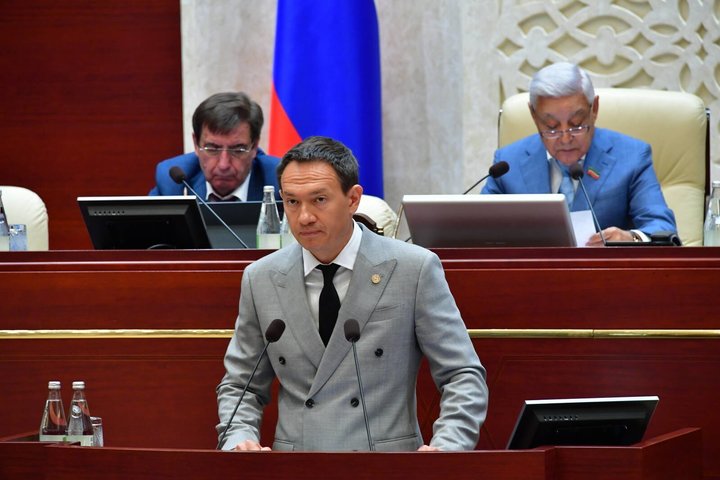
Ilshat Aminov expressed the opinion that the adviser to the President of Russia and the author of the changes to the Federal State Educational Standard Yelena Yampolskaya is simply opposing Russian to other languages:
“Ms Yampolskaya is absolutely groundlessly imposing a contrast between Russian and other languages. We certainly consider Russian, Tatar, and other languages of the peoples to be our native language. No one is stopping us from leaving the term “native languages” in educational standards. There is no contradiction here, this does not bother anyone,” he stressed.
State Council deputy Kamil Nugayev expressed similar indignation:
“I think in Russian, but consider myself a Tatar. Who said, Yelena Yampolskaya, that if your native language is not Russian, but Tatar, then the Motherland does not count on you? This is nonsense! And no one has assessed this.”
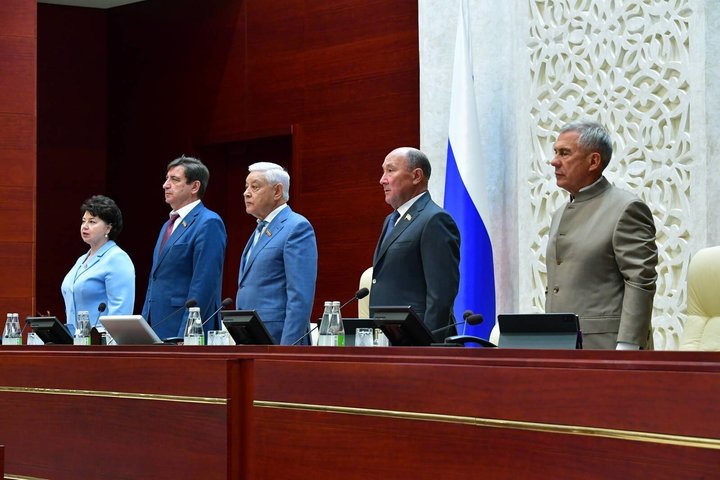
He said that Yampolskaya “offended” him “personally, as a Tatar.” Moreover, at the moment, residents of Tatarstan are participating in the special military operation, and during the Great Patriotic War, the republic took fourth place in the number of Heroes of the USSR — it is unfair to separate these concepts, he is sure.
“Laws must comply with the principles of the Constitution of Russia, ensure a real direction of equality of languages and undergo broad public discussion,” Valiullin urged.
Tatarstan takes measures
The Tatarstan Ministry of Education has already sent a letter to the Russian Ministry of Education with a request not to reduce the hours of native language in the republic's schools. This was announced at the session by the Minister of Education of the Republic of Tatarstan Ilsur Khadiullin.
“We are studying this area. We sent a letter to the Russian Ministry of Education with a request to preserve the curriculum for the national schools of the republic as a whole. <...> Therefore, without exceeding the total maximum load on children, we will find a common language. Work is underway to save one hour,” he assured.
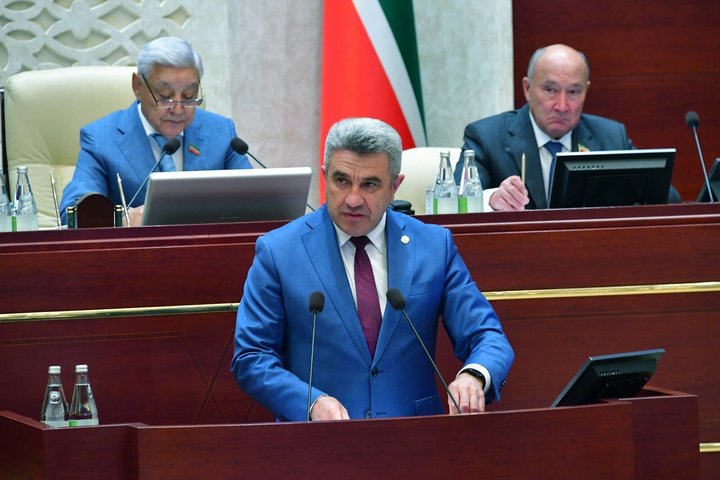
Chairman of the State Council of Tatarstan Farid Mukhametshin, in turn, said that the republic does not intend to remain silent:
“The issue of making new decisions at the federal level has greatly concerned the deputies of the State Council. When we receive this document, we will carefully consider it. Multilingual Russia is our wealth. These issues require attention. The republic will still have its say on this matter.”
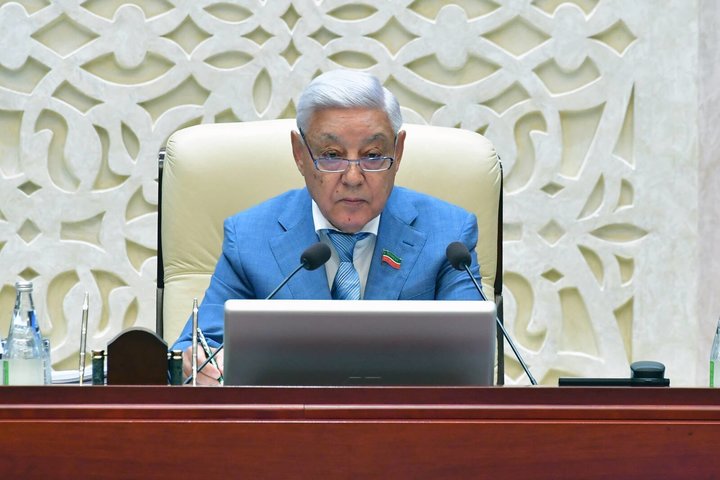
Reference
* Article 26 (Part 2) of the Constitution of the Russian Federation guarantees the right to use one's mother tongue, free choice of the language of communication, education and upbringing; Article 29 (Part 3) prohibits coercion to express opinions, including linguistic identity; Article 68 (Parts 2-3) enshrines the right of republics to establish their state languages and guarantees the preservation of linguistic diversity; Article 72 (Clause 1 b) attributes the protection of human and civil rights and freedoms to the joint jurisdiction of the Russian Federation and its regions.